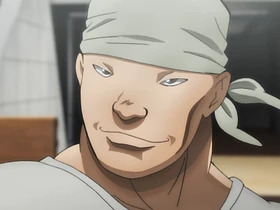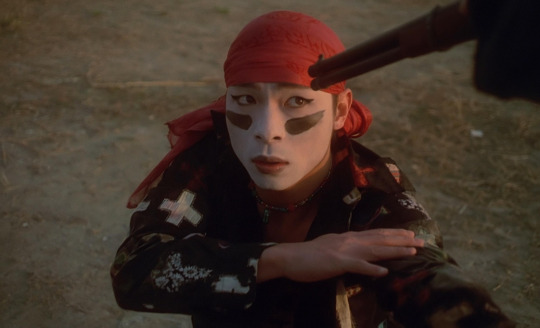#media or people that portray racist things/behave in a racist manner
Explore tagged Tumblr posts
Text
honestly the biggest thing for me in this hamilton (the musical) v hamilton (the person) stuff is just the fact that there is still a hamilton (the musical) fanbase in 2023. that is honest to god mindblowing to me. i thought we'd left the slave owner musical in the past.
#i will note the person complaining about the shared tag is on the spectrum and that musical seems to be a special interest#so i guess. being that passionate makes sense.#also they seem to straight up hate hamilton and like that one red bull driver which.#is surprising to me as another autistic person#who knows that guy dropped ableist +racist slurs in a professional setting twice (2017 then 2020)#and also got to hear firsthand while watching him stream the casual use of one of those slurs.#but i also understand that a LOT of autistic people have difficulty simply dropping special interests or hyperfixations when morally#dubious stuff comes out about them#like hp/the musical i mentioned before etc#at the same time i feel that at times thats also used an excuse to justify continuing liking things/people who#act in harmful ways. because very many autistic people (myself included) can disconnect (its not easy but its doable) when it comes#to harmful special interests. and its use as an excuse generalizes autistic people as a whole as being unable to apply#critical thought to the media we consume which (while true in specific cases for people with specific autistic traits)#makes me uncomfortable. especially when its an issue of the media being racist or antisemetic#a LOT of white autistic and/or queer people try to use those aspects of their identity as an excuse when continuing to follow/support#media or people that portray racist things/behave in a racist manner#which furthet ostracizes the non-white queer and/or autistic people who the petson/media harms#anyway long rant in the tags which is super off topic all this to say i find this situation very very funny#but hope things dont get out of hand and people dont behave shittily to op because god knows#as much as i like lewis hamilton and have many many friends who love and support lewis#the fanbase can fire up needlessly at times and target people with abuse that is ideologically opposite#to a lot of the inclusivity it purports
6 notes
·
View notes
Text
4/1/24 "Swallowtail Butterfly" JPT3391

Swallowtail Butterfly was a hell of a movie. In fact, even trying to explain the plot would cause me to go over the 450 word limit easily. I enjoyed many aspects of the movie, but I also had many many gripes with the way things were 'portrayed'. But- I'm going to ignore all of that to discuss what I think the movie was attempting to display with its incredibly convoluted plot.
That being said.... Yentown is the movie's biggest symbol. It is monologued about at both the beginning and end, shown as both something beautiful... and a terrible dump filled with prostitutes, gang members, racism, and heavy crime.
In this society, every race sucks! But also, every race has good people. Japanese people are kind and often taken advantage of, but they are also portrayed as pimps, yakuza, and pedophiles. Glico is a Chinese prostitute turned Diva, who shelters our Japanese main character from the horrors of the world... But then Mao Foo and Ryanki are Chinese men who run the Japanese Cartel cutthroat. They are both the abuser and the abused. There are also some non-Asians in the movie too! Like Caucasian Japanese citizens who feel rejected from society due to their ethnicity, and black people from all over the world (Africa/America).
Swallowtail tries hard to break down racist stereotypes using stereotypes! We see the stereotype of the 'Chinese prostitute', 'Chinese scammer', 'Perverted old Japanese man', 'Black Boxer', etc. in order to thrust the idea of 'human evil and raceless good' into the spotlight. Characters of all races behave in ways that the viewer would expect while displaying the common good, breaking down stereotypes of inferiority to Japan. It also highlights Japan's treatment of Hafu-s, especially in the music industry ("Yentowns cannot purcahse property", "You must change your race") etc., the disturbance of the drug epidemic, the abusive media, and how certain people will go to unethical lengths for clout and money.
I had so much fun listening to many different languages and accents being seen throughout the film. I felt included as a human being, rather than an outside watcher, especially with the Yentown band bit. Even though I am a white person and had never really felt 'excluded' in media (I'm not a minority), seeing people represent me in a Japanese movie, AND in a positive light, made me feel very involved in this experience.
So, is immigration good!? What is Swallowtail trying to say? I... don't know. I felt mixed signals from this movie. As much as I liked the inclusion of all of these characters from different backgrounds, Yentown itself was portrayed as a disgusting dump. Which might make you think that it would be better if it didn't exist in the first place?
Here I added my favorite character, at the bottom! Mao foo! There is actually a couple other characters from my favorite anime, Baki, that reminded me of him. I wondered if they were inspired by him because their behaviors and mannerisms are very similar!



2 notes
·
View notes